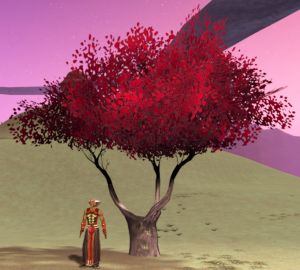From EncyclopAtys
m |
|||
| Line 33: | Line 33: | ||
{{Clear}} | {{Clear}} | ||
{{Last version link|Savaniel}} | {{Last version link|Savaniel}} | ||
| − | {{Portal|Flora}}{ | + | {{Portal|Flora}}{ategory:Flora]] |
| − | |||
| − | |||
| − | |||
| − | |||
| − | |||
| − | |||
| − | |||
[[:Category:Trees]] | [[:Category:Trees]] | ||
[[Category:Flora of the Desert]] | [[Category:Flora of the Desert]] | ||
Revision as of 16:36, 9 November 2019
| Taxonomic Amber | |
| Savaniel | |
|---|---|

| |
| Kingdom | Plants |
| Category | Tree |
| Main Ecosystem(s) | Desert |
| Counterattack type | None |
The savaniel is a 25 to 30 feet tall tree with spiny twigs, bearing orange leaves which immediately turn red in the autumn and whose short petiole is very resilient.
It is perfectly adapted to the aridity of the Burning Desert and its silhouette is characteristic: a broad round crown, gnarled trunk, tortuous and rather short, often made of several intertwined parts.
Extremely hard, savaniel wood is used as timber but as firewood too, as it burns especially slowly.
Its crushed bark is applied as an ointment because of its antiseptic properties. Its leaves, when burnt, give off a pleasant scent that makes the insects flee.
Paradoxically the nuts of its small fruit are used to produce perfume and body oil while its flowers are insignificant and hard to spot in the foliage.
The fyros hominas make great use of savaniel oil. It sometimes happens that the use of a poor quality oil changes the subtle fragrance of the savaniel into an acrid, rancid smell.




